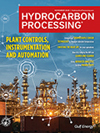Hydrogen
INERATEC secures €70-MM financing commitment for Europe’s largest eFuel production
Sustainable eFuel production pioneer INERATEC has formally agreed to a €40-MM venture debt loan with the European Investment Bank (EIB) and a €30-MM grant with Breakthrough Energy Catalyst. The combined €70 MM backing will finance construction of Europe`s largest sustainable eFuel production plant in Frankfurt and eFuel research and development of future, key steps in decarbonizing aviation.
Nominations now open for the 2025 Women in Hydrogen
In celebration of International Women’s Day, Women in Hydrogen 50 proudly announces the opening of nominations for its 2025 honorees, recognizing female excellence in the global hydrogen sector.
ClearSign Technologies receives purchase order for flare for California project
ClearSign Technologies Corporation announced that, following the completion of the engineering order, the Company has received the purchase order for a flare from an energy company for use in California.
Synergize FCCUs and hydrocracking processing units to maximize refining margins
Kern Energy announces H2 storage, utilization and decarbonization initiative at Bakersfield (U.S.) refinery
Kern Energy has announced a significant investment in its Bakersfield, California (U.S.) refinery, reducing its carbon footprint while improving efficiency with Claire Technologies' hydrogen (H2) storage and release system alongside seven HyAxiom, Inc. H2-powered fuel cells.
Nextchem to provide technology for Pacifico Mexinol's ultra-low carbon methanol plant (Mexico)
When it initiates operation in 2028, Pacifico Mexinol's facility is expected to be the largest single ultra-low carbon methanol facility in the world, producing approximately 350,000 tpy of green methanol and 1.8 MMtpy of blue methanol from natural gas with carbon capture.
Air Products exits three U.S. projects, takes write down not to exceed $3.1 B
Air Products announced its decision to exit three projects in the U.S. As a result, Air Products expects to record a pre-tax charge not to exceed $3.1 billion in its fiscal 2025 second quarter, primarily to write down assets and terminate contractual commitments.
H2 station from ethanol begins testing phase at Cidade Universitária in Brazil
USP is developing tests for the world’s first experimental station dedicated to the production of renewable hydrogen (H2) from ethanol. The project, led by the University’s Center for Research and Innovation in Greenhouse Gases (RCGI), represents a milestone in the search for clean energy solutions and the transition to a low-carbon economy.
Eni to use Nextchem's gasification technology to produce circular methanol and hydrogen
MET Development (MAIRE), Eni and Iren Ambiente have started the permitting process for an innovative circular methanol and hydrogen production plant at Eni’s refinery in Sannazzaro de' Burgondi (Pavia), Italy. The plant will have capacity of up to 110,000 tpy of methanol and up to 1,500 tpy of hydrogen
OMV Petrom starts construction of sustainable fuels unit at Petrobrazi Refinery
The new sustainable aviation fuel (SAF) and renewable diesel (HVO) unit will have a production capacity of 250,000 tons of sustainable fuels per year, starting in 2028.

- NAPCOR releases 2024 PET recycling report highlighting system efficiency gains and continued strength of PET circularity 12/12
- OQ courts other partners for petrochemical complex in Oman as SABIC drops out 12/12
- Brazil's BNDES approves $71 MM for carbon storage project 12/12
- Cuba on edge as U.S. seizure of oil tanker puts supply at risk 12/12
- China oil demand to plateau between 2025 and 2030 12/12
- Germany's PCK refinery says no impact from pipeline leak 12/12




